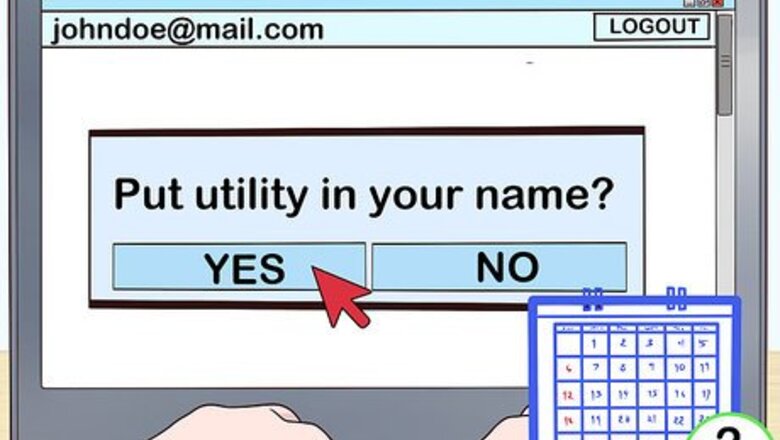
views
Transferring an Existing Utility
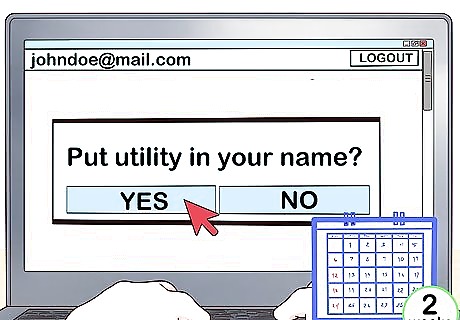
Put the utility in your name as soon as you can. If you're moving to a new home, try to handle the utility transfer at least 2 weeks before you arrive, that way you won't run into billing issues with the previous tenant. If you're declaring a name change or switching the bill from 1 member of the household to another, handle the transfer as soon as possible to avoid any paperwork mishaps or legal complications. If you fail to transfer the utility, the person named on the original bill remains liable for future payments. This can lead to legal issues if that person moves out or if your lease requires you to change the bill over. Some landlords include utility services in your normal housing bill, meaning you won't have to put them in your name.

Contact your utility provider and request a bill transfer. If necessary, acquire your utility provider's contact information from your landlord or whoever paid the bill previously. Then, call the company or visit 1 of their local offices to request a bill transfer. Some utility providers may allow you to alter your billing information through their official website.
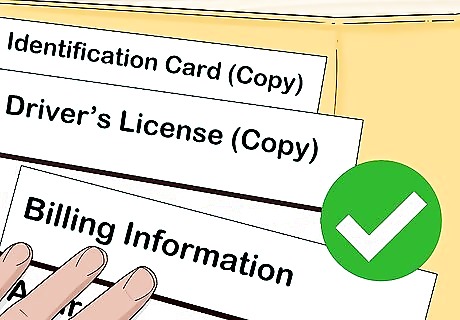
Provide any requested personal documents. To put a utility in your name, you'll need to show the provider proof of your identity, such as your ID, driver's license, or birth certificate, and billing address, usually a lease agreement or piece of mail. In some cases, the company may also request documents related to your employment status or credit history. If you're declaring a name change, you'll typically need to show a government ID bearing your new name, your name change certificate and, for newlyweds taking their spouse's last name, your marriage certificate.

Make a deposit payment if required. If you do not have a payment history with the utility company, they may require you to put down a deposit payment. Typically, the payment total depends on your credit score and track record with previous utility providers. You should not have to put down a new deposit if you're simply declaring a name change. However, you may need to pay a processing fee.
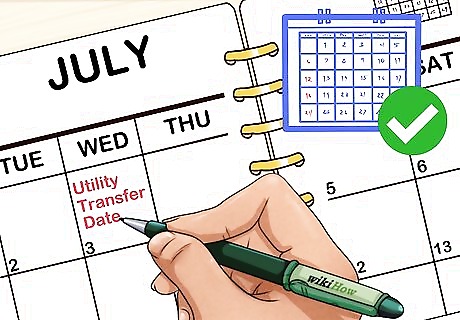
Schedule a utility transfer date if necessary. In some cases, the utility company will update your billing information on the spot. In other cases, you'll have to schedule a specific service transfer date. To ensure that you don't experience a lapse in service, make sure the transfer date is before the home's service cut-off date. If you're moving to a new place, call the utility company before you leave to make sure everything's been transferred over successfully.
Setting Up a New Utility
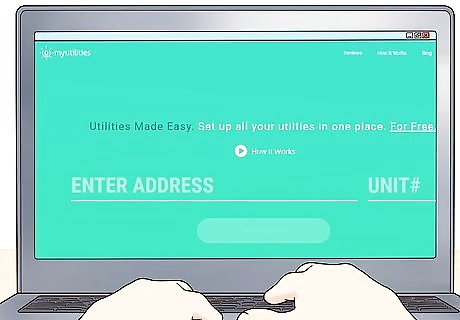
Look up competitive utility services in your area. When you're ready to sign up for a new utility, search online to see what options are available in your area. For some services, you may be limited to a single provider. For others, however, you may get a choice between multiple companies and, in some cases, a government-ran public option. You can look up companies on normal search engines or utility databases like https://myutilities.com. Eric Tyson Eric Tyson, Bestselling Personal Finance Author When you move into a new rental, putting the electric, gas, water, and other utilities in your name is a key task. Contact each provider a few weeks beforehand to schedule account transfers for your move-in date. Confirm any security deposits and have your ID ready. Reading the meter yourself on move-in day provides proof if any usage disputes arise.

Choose a company that offers either the best service or lowest prices. For utility companies that rely primarily on city infrastructure, such as water providers, go with the company that has the lowest annual rates in your area. For companies that provide their own infrastructure, such as internet service providers, pick the company with the best service options. When comparing prices, keep in mind that some companies charge a flat monthly rate while others bill you based on how much you use their service.

Go to the company's office and verify your identity and location. Once you've chosen a utility provider, go to 1 of their local offices to talk with a company representative. Make sure to bring documents that prove your identity, such as your birth certificate or driver's license, and billing address, such as your lease paperwork. Some companies may require additional documents as well to verify your credit history or employment status.
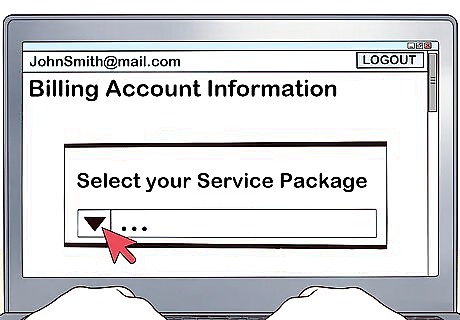
Choose your service package. For some utilities, especially those that bill you based on use, you may be relegated to a single, standardized service option. For others, you'll be able to select from a variety of packages that vary in cost. During this time, the company representative may require you to create an online billing account.

Make a deposit payment. When signing up for a new utility, you'll have to make a deposit payment to protect the company if you fail to pay your bill. The deposit varies from person to person and depends on your payment history with previous utility companies and credit score. The company may require additional deposit payments if they have to lend you equipment.
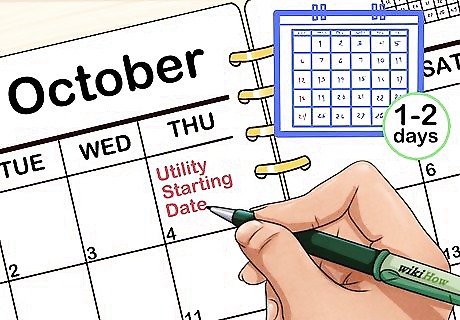
Schedule your utility starting date. After making your deposit, choose the day you want your utility service to start. In some cases, you may also have to schedule a time when the company can come to your home and install any necessary equipment. If you're moving into a new house or apartment, try to schedule the utility service so it starts 1 or 2 days before you arrive.




















Comments
0 comment